
Hockey is a term used to denote a family of various types of both summer and winter team sports which originated on either an outdoor field, sheet of ice, or dry floor such as in a gymnasium. While these sports vary in specific rules, numbers of players, apparel, and playing surface, they share broad characteristics of two opposing teams using a stick to propel a ball or disk into a goal.

Ice hockey is a team sport played on ice skates, usually on an ice skating rink with lines and markings specific to the sport. It belongs to a family of sports called hockey. In ice hockey, two opposing teams use ice hockey sticks to control, advance, and shoot a closed, vulcanized, rubber disc called a "puck" into the other team's goal. Each goal is worth one point. The team which scores the most goals is declared the winner. In a formal game, each team has six skaters on the ice at a time, barring any penalties, one of whom is the goaltender. Ice hockey is a full contact sport, and is considered to be one of the more physically demanding team sports. It is distinct from field hockey, in which players move a ball around a non-frozen pitch using field hockey sticks.
Roller hockey is a form of hockey played on a dry surface using wheeled skates. It can be played with traditional roller skates or with inline skates and use either a ball or puck. Combined, roller hockey is played in nearly 60 countries worldwide.

The Swedish Hockey League is a professional ice hockey league, and the highest division in the Swedish ice hockey system. The league currently consists of 14 teams. The league was founded in 1975, and while Swedish ice hockey champions have been crowned through various formats since 1922, the title and the Le Mat Trophy have been awarded to the winner of the SHL playoffs since the league's inaugural 1975–76 season.
Overtime is a method of determining a winner in an ice hockey game when the score is tied after regulation. The main methods of determining a winner in a tied game are the overtime period, the shootout, or a combination of both. If league rules dictate a finite time in which overtime may be played, with no penalty shoot-out to follow, the game's winning team may or may not be necessarily determined.
Overtime or extra time is an additional period of play specified under the rules of a sport to bring a game to a decision and avoid declaring the match a tie or draw where the scores are the same. In some sports, this extra period is played only if the game is required to have a clear winner, as in single-elimination tournaments where only one team or players can advance to the next round or win the tournament and replays are not allowed.
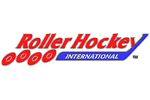
Roller Hockey International was a professional inline hockey league that operated in North America from 1993 to 1999. It was the first major professional league for inline hockey.
The Amateur Hockey Association of Canada (AHAC) was an amateur men's ice hockey league founded on 8 December 1886, in existence until 1898. It was the second ice hockey league organized in Canada, after one in Kingston, Ontario started in 1883. It was organized to provide a longer season to determine the Canadian champion. Prior to its founding, the Canadian championship was determined in a tournament in Montreal. It is the first championship ice hockey league.

Roller in-line hockey, American roller hockey or inline hockey, is a variant of hockey played on a hard, smooth surface, with players using inline skates to move and ice hockey sticks to shoot a hard, plastic puck into their opponent's goal to score points. The sport is a very fast-paced and free-flowing game and is considered a contact sport, but body checking is prohibited. There are five players including the goalkeeper from each team on the rink at a time, while teams normally consist of 16 players. There are professional leagues, one of which is the National Roller Hockey League (NRHL). While it is not a contact sport, there are exceptions, i.e. the NRHL involves fighting.
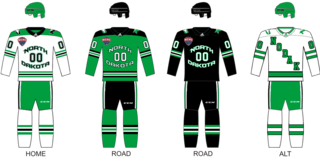
The North Dakota Fighting Hawks men's ice hockey team is the college ice hockey team at the Grand Forks campus of the University of North Dakota. They are members of the National Collegiate Hockey Conference (NCHC) and compete in National Collegiate Athletic Association (NCAA) Division I ice hockey. North Dakota is widely regarded as a premier college hockey school and has one of the most storied programs in NCAA history. UND has made over 30 appearances in the NCAA tournament, appeared in the Frozen Four 22 times, and has won 8 NCAA Division I Championships. The program has also achieved 15 WCHA Regular season Championships, 5 NCHC Regular season Championships, and 12 Conference Tournament championships. The school's former nickname was the Fighting Sioux, which had a lengthy and controversial tenure before ultimately being retired by the university in 2012 due to pressure from the NCAA. The official school nickname is now the Fighting Hawks, a name that was chosen by the university on November 18, 2015.

Roller hockey, rink hockey or quad hockey is a team sport played on roller skates. It is a quad-skate team sport where two teams face-off against one another, trying to drive a hard ball with their sticks into the opposing teams' goalnet. Each team has five players on the rink at a time, four of whom are skaters and one who is the goalkeeper. The ball can only be put in motion by a stick, not the skate, otherwise a foul will be stated. The game has two 25-minute halves, with 15-minute halftime intermission, plus up to two 5-minute golden goal periods to settle ties with the clock stopping when the ball becomes dead. If the tie persists, a penalty shootout will determine the winner. Players – including the goalie – use quad skates, whereas inline skates are used in inline hockey. The sticks are similar to those in bandy and shinty. Excessive contact between players is forbidden in rink hockey, unlike inline hockey.
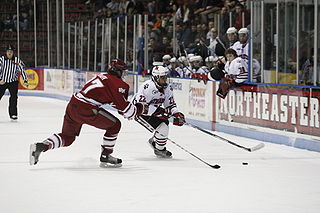
College ice hockey is played principally in the United States and Canada, though leagues exist outside North America.

The Professional Inline Hockey Association (PIHA) is an "incorporated for-profit association" which operates an inline hockey league, with two conferences, of 11 franchised member clubs, all of which are currently located in the United States. Headquartered in Middletown, Pennsylvania, the PIHA is considered to be one of the premier inline hockey leagues in the United States. The Founders Cup Finals is held annually to crown the league playoff champion in the Pro and Minor divisions at the end of each season. PIHA also offers divisions for teens, & adults 35-and-over.
J20 Nationell is a junior ice hockey league composed of 20 teams in Sweden. Previously known as the J20 SuperElit, it is the highest-level junior ice hockey league in Sweden. The teams are divided in two groups, or divisions, Norra (North) and Södra (South), and are usually associated with a professional team in either the Swedish Hockey League (SHL) or HockeyAllsvenskan in order to develop talented youth for the professional teams. The winning team of the J20 Nationell playoffs is awarded the Anton Cup.

Major League Roller Hockey (MLRH) is a limited liability company which operates multiple inline hockey leagues and tournaments. Headquartered in Alexandria, Virginia, MLRH is one of the only full-contact inline hockey competitions in the world.
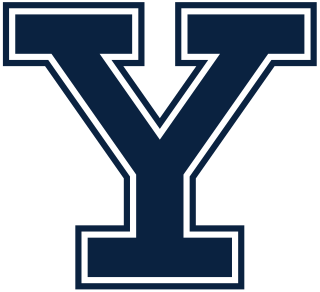
The Yale Bulldogs men's ice hockey team represents Yale University in New Haven, Connecticut and is the oldest collegiate ice hockey team in the United States. The Bulldogs compete in the Ivy League and the ECAC Hockey League (ECACHL) and play their home games at Ingalls Rink, also called the Yale Whale. The current head coach is Keith Allain, who led the Bulldogs to an Ivy League championship in his first year as head coach. Allain is assisted by former QU/UND goaltender, Josh Siembida. On April 13, 2013, the Bulldogs shut out Quinnipiac 4–0 to win their first NCAA Division I Championship.
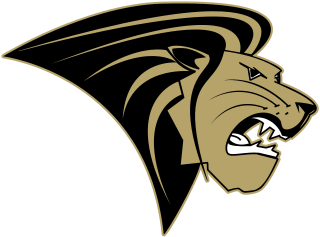
The Lindenwood Lions and Lady Lions are the intercollegiate athletic teams that represent Lindenwood University, located in St. Charles, Missouri, in intercollegiate sports as a member of the NCAA Division I ranks, primarily competing in the Ohio Valley Conference for most of its sports since the 2022–23 academic year.
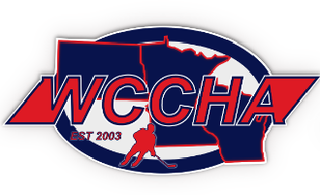
The Western Collegiate Club Hockey Association (WCCHA) is a conference of men's club ice hockey teams from the American Collegiate Hockey Association (ACHA) competing at the Division II level. The participating teams come from colleges and universities in the Upper Midwest, including North Dakota, Minnesota and Wisconsin. Teams in the WCCHA are primarily student-run sports clubs with limited University funding, requiring significant player dues and fundraising for team operation.
The 2013 National Collegiate Roller Hockey Championships was the 15th national championship tournament for college inline hockey in the United States. The Division I tournament involved 24 teams to determine the national champion of the 2012–13 season at the Division I level of the National Collegiate Roller Hockey Association (NCRHA), the highest level of competition in college inline hockey. The tournament was hosted by the Southeastern Collegiate Roller Hockey League at the Fort Myers Skatium in Fort Myers, Florida.
The Lindenwood Lady Lions ice hockey team represents Lindenwood University located in St. Charles, Missouri. The Lady Lions currently participate in the NCAA Division I competition as a member of College Hockey America (CHA). The team played with no conference affiliation as an Independent program for its first season of NCAA competition. During the 2011–12 season, Lindenwood was accepted into College Hockey America (CHA) beginning in the 2012–2013 season. Prior to 2011 the university was a member of the National Association of Intercollegiate Athletics (NAIA), because the organization does not sponsor women's ice hockey, the program competed in the American Collegiate Hockey Association at the ACHA DI level.













